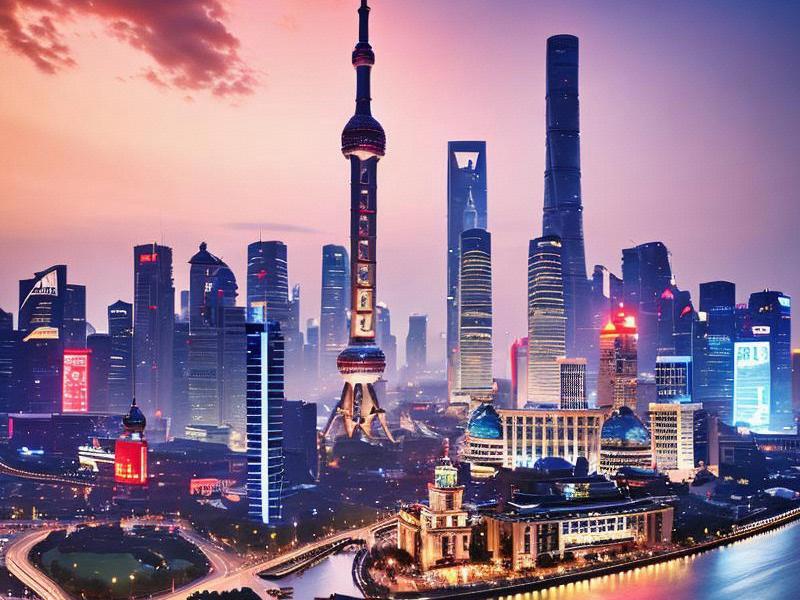
Shanghai, the bustling metropolis of China, has long been a beacon of cultural and entertainment innovation. As one of the most cosmopolitan cities in the world, Shanghai's entertainment scene is a melting pot of tradition and modernity, offering a wide array of activities that cater to all tastes and preferences.
The city's rich history and cultural heritage provide a solid foundation for its entertainment industry. Shanghai's traditional arts, such as Peking opera, Kunqu opera, and Shanghainese opera, continue to thrive and attract audiences both young and old. These traditional performances, often held in historic theaters and cultural centers, offer a glimpse into the city's past and its deep-rooted cultural identity.
However, Shanghai is not content to rest on its laurels. The city is also at the forefront of modern entertainment trends, constantly pushing the boundaries of creativity and innovation. The Shanghai Grand Theatre, for instance, is a world-renowned venue that hosts a diverse range of performances, from classical ballet and opera to contemporary theater and music. Its state-of-the-art facilities and world-class acoustics make it a favorite among performers and audiences alike.
In addition to its traditional and classical offerings, Shanghai is also home to a thriving contemporary art scene. The city's numerous art galleries and museums showcase works by both Chinese and international artists, reflecting the dynamic and ever-evolving nature of the art world. The Power Station of Art, a former power plant turned art museum, is a prime example of Shanghai's commitment to supporting contemporary art. It hosts regular exhibitions that explore a wide range of themes and mediums, from painting and sculpture to video art and installation.
上海花千坊419 Music is another area where Shanghai truly shines. The city is home to a vibrant live music scene, with countless bars, clubs, and concert venues offering everything from jazz and rock to electronic and pop music. The Shanghai Jazz Festival, held annually, is a major event that attracts top international jazz musicians and thousands of music lovers. The festival not only showcases the best of jazz but also serves as a platform for local talent to gain exposure and recognition.
Theater is yet another facet of Shanghai's entertainment scene that deserves special mention. The city's theaters offer a wide range of productions, from Shakespearean plays to Chinese operas and experimental theater. The Shanghai Theatre Academy, one of the most prestigious drama schools in China, has produced many renowned actors and directors who have gone on to achieve great success in the industry.
Nightlife in Shanghai is equally diverse and exciting. The city's nightlife district, known as the "Bar Street," is a haven for partygoers, with its array of bars, nightclubs, and karaoke lounges. From trendy rooftop bars with stunning views of the city skyline to underground clubs with pounding beats and energetic crowds, there is something for everyone in Shanghai's nightlife scene.
One of the most unique aspects of Shanghai's entertainment scene is its ability to blend tradition and modernity. For example, the city's traditional tea houses have evolved to incorporate modern elements, offering a unique experience that combines the tranquility of traditional tea culture with the vibrancy of contemporary Shanghai. Similarly, the city's modern shopping malls often feature traditional Chinese art exhibitions and performances, creating a seamless blend of old and new.
上海品茶网 Shanghai's entertainment industry is also a significant contributor to the city's economy. The tourism industry, in particular, benefits greatly from the city's rich cultural and entertainment offerings. Visitors from around the world flock to Shanghai to experience its unique blend of tradition and modernity, spending money on tickets to performances, visits to art galleries and museums, and nights out on the town.
The city's government has also recognized the importance of the entertainment industry and has taken steps to support its growth. In recent years, Shanghai has invested heavily in cultural infrastructure, building new theaters, museums, and art galleries to accommodate the growing demand for cultural and entertainment experiences. The city has also introduced various initiatives to promote local talent and encourage innovation in the entertainment industry.
One such initiative is the Shanghai Cultural Expo, an annual event that showcases the best of Shanghai's cultural and entertainment offerings. The expo features a wide range of activities, including art exhibitions, live performances, and cultural workshops, providing a platform for local artists and performers to showcase their talents and connect with audiences.
上海龙凤419 Another initiative is the Shanghai International Film Festival, one of the most prestigious film festivals in Asia. The festival attracts a diverse lineup of international and Chinese films, as well as renowned filmmakers and actors from around the world. It serves as a platform for filmmakers to gain exposure and recognition, while also providing audiences with a chance to experience the latest trends in cinema.
In addition to these initiatives, Shanghai has also embraced the digital age, using technology to enhance the entertainment experience. The city's many cultural and entertainment venues now offer online ticketing, virtual tours, and interactive exhibits, making it easier than ever for people to access and enjoy the city's rich cultural offerings.
Despite its many achievements, Shanghai's entertainment scene is not without its challenges. The rapid pace of urbanization and modernization has led to concerns about the preservation of the city's traditional culture. However, efforts are being made to strike a balance between preserving the past and embracing the future.
For example, the city has introduced various programs to promote traditional arts and crafts, such as Peking opera and calligraphy. These programs aim to keep these traditional art forms alive and relevant in today's society, ensuring that they continue to be passed down to future generations.
